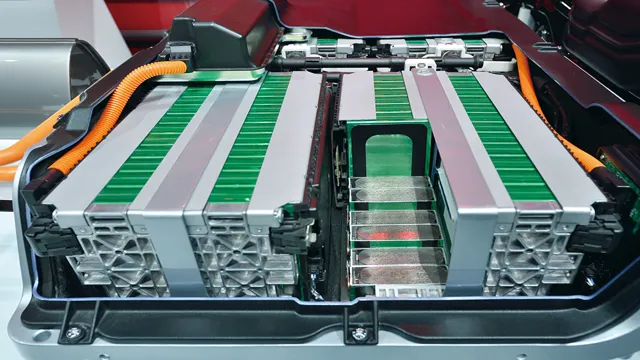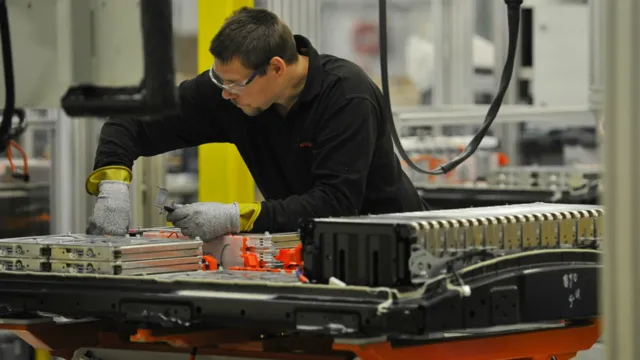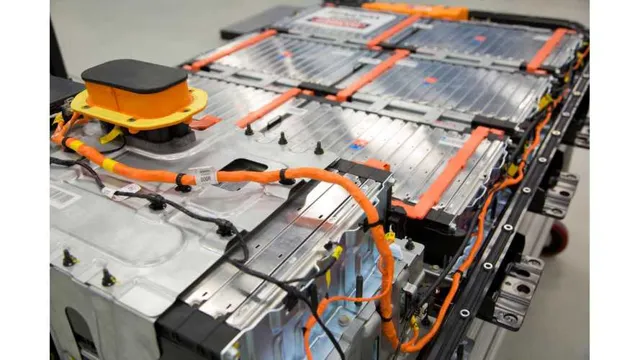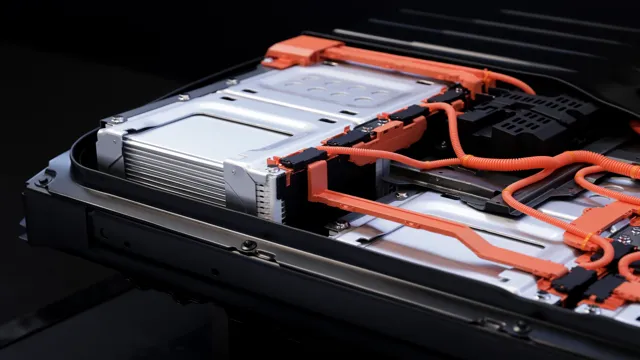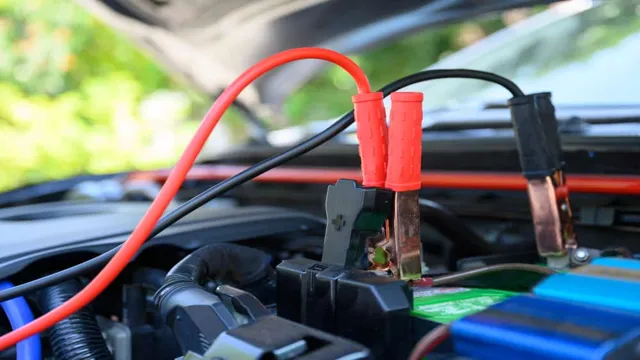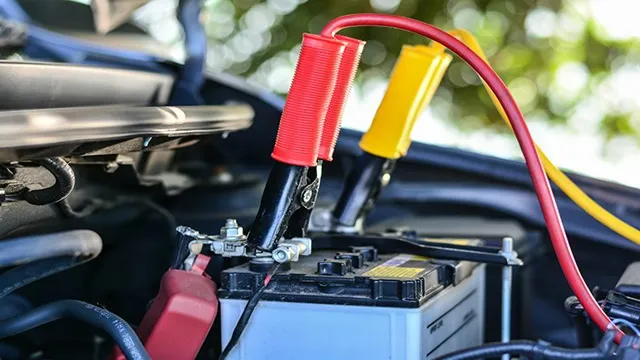When to Replace Your Electric Car Battery: A Comprehensive Guide
You’ve finally made the switch to an electric car and are reaping the benefits of its eco-friendliness and low-cost maintenance. However, one question lingers: when should you replace the battery? Electric car batteries are the heart of the vehicle, and replacing them can be a costly endeavor. So, knowing when to do so can save you a significant amount of money while ensuring that your car remains reliable.
In this blog post, we will cover the signs that indicate it’s time to replace your electric car battery, so you can stay informed and keep your electric car running efficiently.
Battery Life Expectancy
Electric cars have been gaining popularity in recent years, but one question remains – how often do electric car owners need to replace their batteries? Generally speaking, the lifespan of an electric car battery can last anywhere from 8 to 10 years or more. However, there are several factors that can affect the battery’s life expectancy, such as the make and model of the car, the quality of the battery, the weather conditions it’s exposed to, and the driving habits of the owner. Of course, the cost of replacing an electric car battery can be quite expensive, ranging from a few thousand dollars to over ten thousand dollars.
Therefore, it’s important for electric car owners to take good care of their batteries, such as avoiding overcharging or overheating, and following proper maintenance procedures to extend their battery’s longevity. Ultimately, the decision to replace an electric car battery should be based on its condition and performance, and owners should consult with their manufacturer or a qualified mechanic to determine the best course of action.
Explaining Battery Life
Battery life is a topic of concern for everyone who uses electronic devices. While most devices come with an estimate of how long the battery will last, it’s important to understand how and why batteries degrade over time. A battery’s life expectancy can depend on a variety of factors, including usage and heat exposure.
Over time, all batteries will experience a decrease in capacity, which means they won’t hold a charge for as long as they used to. This is because the chemical reactions inside the battery that generate the electricity will become less efficient. The good news, however, is that there are measures you can take to prolong the life of your battery.
For example, keeping your device at room temperature and avoiding overcharging it can help maximize its lifespan. In the end, it’s essential to keep in mind that batteries are a consumable product and will need to be replaced eventually.
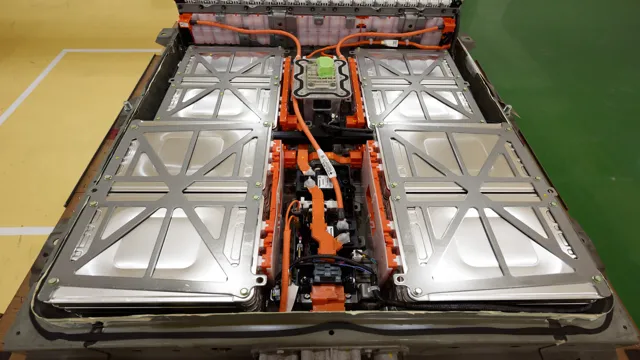
Factors That Affect Battery Life
When it comes to battery life, there are a variety of factors that can impact how long your device will last before needing a recharge. One key factor is the type of battery technology used – some types of batteries, such as lithium-ion, tend to have longer lifespans than others. Other important factors to consider include how frequently you use your device, the conditions in which it is used (extreme temperatures can negatively impact battery life), and whether or not you regularly maintain your battery (such as by charging it properly and avoiding over-discharging).
It’s also worth noting that over time, all batteries will naturally begin to lose their capacity, generally due to chemical changes that occur within the battery cells. However, by taking steps to care for your battery and using your device responsibly, you can help extend its lifespan and maximize the amount of time you are able to use it between charges.
How Long Do Electric Car Batteries Last?
If you’re considering an electric car, one question that’s likely on your mind is: how long do electric car batteries last? Fortunately, the answer is that they last quite a while. Most electric car batteries are designed to last for over 100,000 miles before they need to be replaced. However, the lifespan of your electric car battery will depend on several factors, including the make and model of your car, how often you charge your battery, and the conditions in which you drive.
For example, if you frequently drive at high speeds or in extreme temperatures, your battery may not last as long as it would if you were driving in more moderate conditions. Similarly, if you charge your battery too frequently or too infrequently, this can also affect its lifespan. Ultimately, if you take good care of your electric car battery and follow the manufacturer’s recommendations, you can expect it to last for many years before it needs to be replaced.
Examples of Electric Car Battery Lifespan (by Model)
Electric car batteries are a crucial factor for car buyers who want to go green and break away from traditional fuel options. The question of how long electric car batteries last is a common one, with most car shoppers wanting reassurance that they’ll get their money’s worth. Generally, lithium-ion batteries in electric cars can last anywhere from 8 to 10 years with proper care and maintenance.
However, the lifespan may vary depending on the make and model of the car. For example, Teslas have proven to be reliable, with a minimum lifespan of 300,000 miles before the battery’s capacity drops below 80%. On the other hand, the Nissan Leaf has had some issues with battery degradation, with an average lifespan of around 100,000 miles.
It’s always wise to research a specific electric car model’s battery lifespan before making a purchase to ensure that it meets your requirements.
Statistics on Electric Car Battery Degradation
Electric car battery degradation is a concern for many prospective buyers. However, the good news is that electric car batteries are built to last. According to studies, the average battery life of an electric car is around 8-10 years or 100,000-200,000 miles.
It’s important to note that different factors affect battery life, such as the frequency of charging, temperature, and driving style. For instance, batteries that are frequently charged above 80% or discharged below 20% will degrade faster than those that are kept within that range. Similarly, extreme temperatures, such as those found in hot or cold climates, can also affect battery life.
To protect your battery and ensure it lasts as long as possible, it’s advisable to avoid fast charging too often and park in a cool, shaded area. Additionally, regular maintenance and software updates may help prolong battery life. Overall, with proper care and usage, electric car batteries can last for several years with minimal degradation.
Ways to Prolong Your Electric Car Battery Life
Electric car batteries typically last between 8 and 10 years or up to 200,000 miles, depending on the type of electric vehicle (EV) and the battery technology used. However, the lifespan of an EV battery can vary depending on several different factors, such as driving style, weather conditions, charging habits, and how well the battery is maintained. To prolong the life of an electric car battery, there are several ways you can take care of it.
One way to make your electric car battery last longer is to avoid letting it run completely dead. It is recommended to keep the battery charge above 20% to avoid putting unnecessary stress on the battery. Another way to increase the lifespan of your EV battery is to avoid extreme temperatures.
Extreme cold or hot weather can affect the battery’s performance, so it’s best to park your electric car in a climate-controlled garage and avoid charging the battery in extremely hot or cold environments. Regular maintenance can also help increase the lifespan of your electric vehicle battery. This includes keeping the battery clean and free of debris, as well as checking for signs of wear or damage.
Additionally, it’s important to use the right charging equipment to ensure that the battery is charged correctly. Using a compatible charger with the right voltage can help to prevent unnecessary stress or damage to the battery. In summary, electric car batteries have a longer lifespan than traditional gasoline engines, but taking care of the battery can help it to last even longer.
By avoiding extreme temperatures and keeping the battery charged correctly, you can prolong the lifespan of your EV battery and enjoy the many benefits of an electric vehicle.
When to Replace Your Electric Car Battery?
Electric car batteries are designed to last a long time, typically around 8 to 10 years or 100,000 miles, before they need to be replaced. However, the lifespan of electric car batteries can be affected by a number of factors, such as the temperature and how often the battery is charged and discharged. If you notice that your electric car’s range is decreasing or if it takes longer to charge the battery than it used to, it may be time to replace the battery.
Additionally, if the battery is damaged or showing signs of wear and tear, such as leaks or cracks, it’s important to have it replaced before it becomes a safety hazard. Ultimately, the decision to replace an electric car battery depends on a variety of factors unique to each vehicle and its owner’s needs.
Signs Your Battery Needs Replacing
As with any vehicle, electric cars rely on batteries to function, and over time, those batteries wear down. So how do you know when it’s time to replace your electric car battery? One of the main signs is a decrease in driving range. If you’re finding that you need to recharge your car more frequently, or that your car isn’t traveling as many miles on a single charge as it used to, that’s a clear indication that your battery may need replacing.
Additionally, if you notice that your car’s acceleration feels sluggish, or that it’s struggling to reach top speeds, that’s another warning sign. Keep in mind that electric car batteries typically last between 8-10 years, so if your battery is approaching that age range, it’s worth having it checked out to see if it needs replacing. Ultimately, it’s better to be safe than sorry when it comes to your car’s battery – after all, it’s what powers the entire vehicle!
How to Test Your Electric Car Battery Health
As an electric car owner, it’s important to keep an eye on the health of your battery to ensure it’s performing at its best. So, how do you test your electric car battery health? First, look for any warning signs such as reduced range or slower acceleration. You can also use an app or tool to measure the state of charge and voltage.
If you notice a significant drop in performance, it may be time to consider replacing your battery. However, keep in mind that batteries typically last for several years and can be costly to replace. It’s also worth considering alternative solutions such as reconditioning or refurbishing your battery to extend its lifespan.
Overall, regular monitoring and maintenance can help you avoid costly repairs and keep your electric vehicle running smoothly.
Conclusion: Cost of Replacing Battery vs Purchasing New Car
In conclusion, electric car batteries are a marvel of modern technology. While they can last for years, eventually they will need to be replaced. The frequency of replacement depends on various factors including usage, charging habits, and climate.
So, if you want to keep your electric vehicle running smoothly, just remember to keep an eye on your battery’s health and charge it responsibly. After all, prevention is the best medicine for a healthy electric car battery!”
FAQs
How often should electric car batteries be replaced?
The lifespan of electric car batteries can vary, but they typically last between 5 to 10 years. Some factors that affect battery lifespan include usage, climate, and charging habits.
Can electric car batteries be recharged or recycled?
Yes, electric car batteries can be recharged using a charging station or a home charging unit. They can also be recycled to recover valuable metals and reduce waste.
What is the cost to replace electric car batteries?
The cost to replace electric car batteries can vary depending on the make and model of the vehicle, but it can range from $3,000 to $10,000. However, many manufacturers offer warranties and incentives to help offset these costs.
How do I know when my electric car battery needs to be replaced?
There are several signs that your electric car battery may need to be replaced, including reduced driving range, slower acceleration, and difficulty charging. It’s best to have your battery inspected by a certified technician if you are experiencing any of these symptoms.
